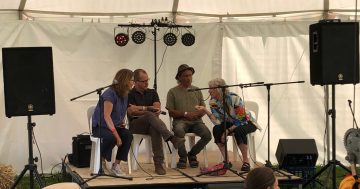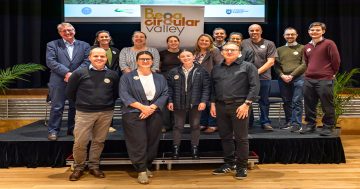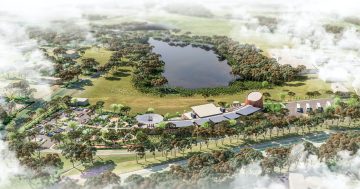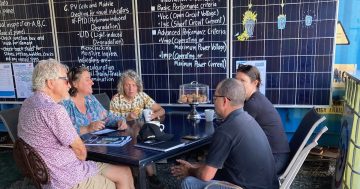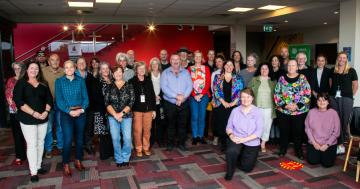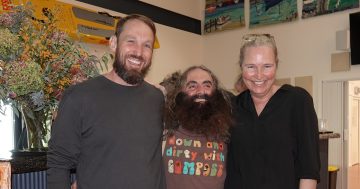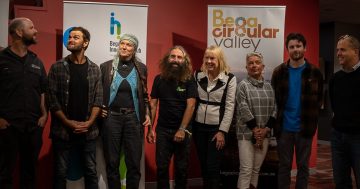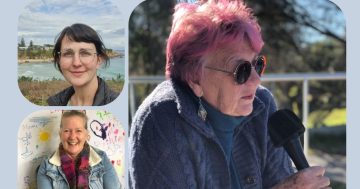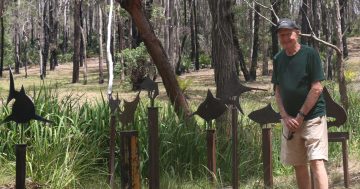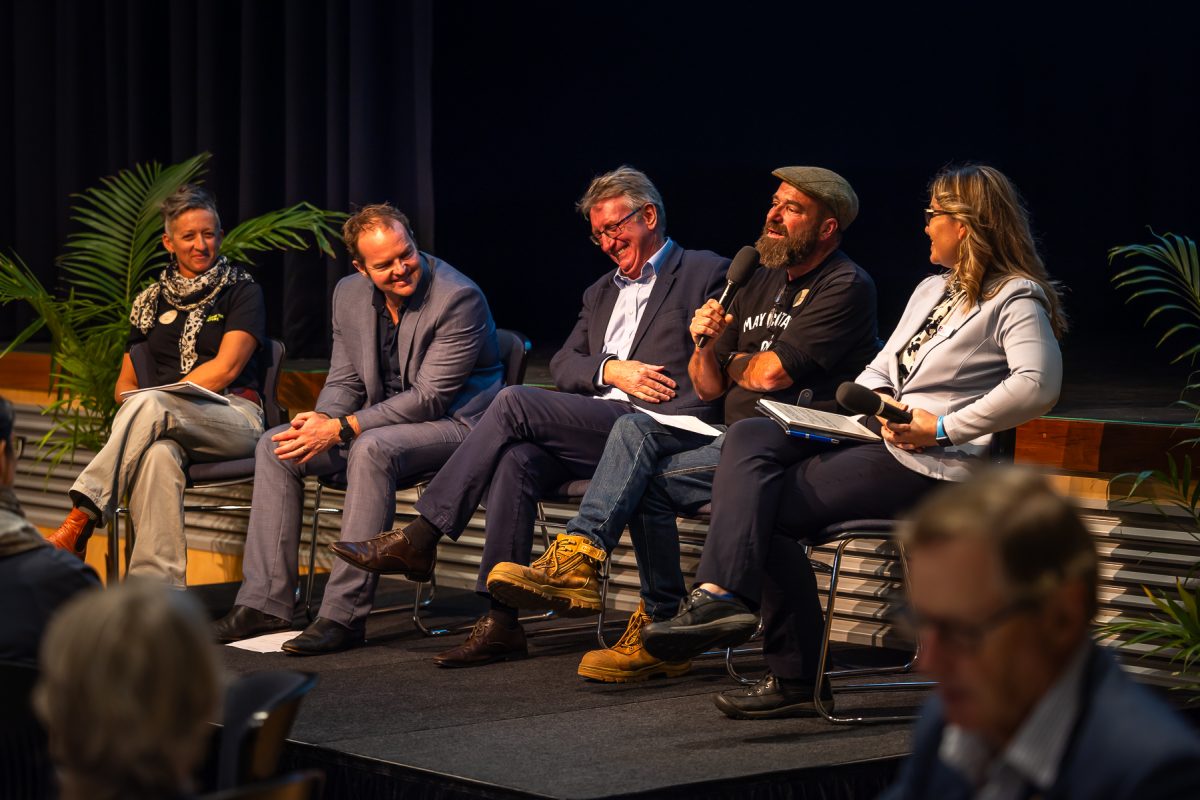
Panellists at the Bega Circular Valley Community Workshop: Vanessa Spinelli, chief operating officer at Grow the Future; Anthony McMahon, CEO of Bega Valley Shire Council; Barry Irvin, chair of the Regional Circularity Co-operative; Gavin Hughes, co-owner and head distiller at North of Eden Distillery; and Liz Dixon, deputy director NSW Department of Primary Industries & Regional Development. Photo: David Rogers Photography.
Four years ago, Bega Group executive chair Barry Irvin had a vision to make the Bega Valley a circular economy.
On 28 May, 140 people, including federal, state and local government representatives, scientists, academics, business owners, Aboriginal elders and community groups joined a booked-out community workshop to brainstorm next steps.
Mr Irvin, who is also chair of the Regional Circularity Co-operative in Bega, said the high attendance and interest in the workshop showed that a good idea drove people to participate.
The workshop was held at the Bega Valley Commemorative Civic Centre. The walls of the venue were lined with information about successful circularity projects in the valley and beyond such as Growing the Future, Repurposing for Resilience Eurobodalla and Bermagui dispensing with single-use coffee cups.
Four years ago Mr Irvin took Bega Valley Shire Mayor Russell Fitzpatrick and executives from Rabobank and KPMG on a bus trip across the valley to meet farmers.
He asked each farmer what they did. It made him realise how little he knew. He asked them about their aspirations and what was stopping them.
He thought about the valley’s diverse produce and industries – oysters, fish, chickens, orchards, truffles, dairy – and how its social needs of housing, education and healthcare mapped those of other regions.
“If there was ever an opportunity to take a small region circular, it is the Bega Valley,” he said.
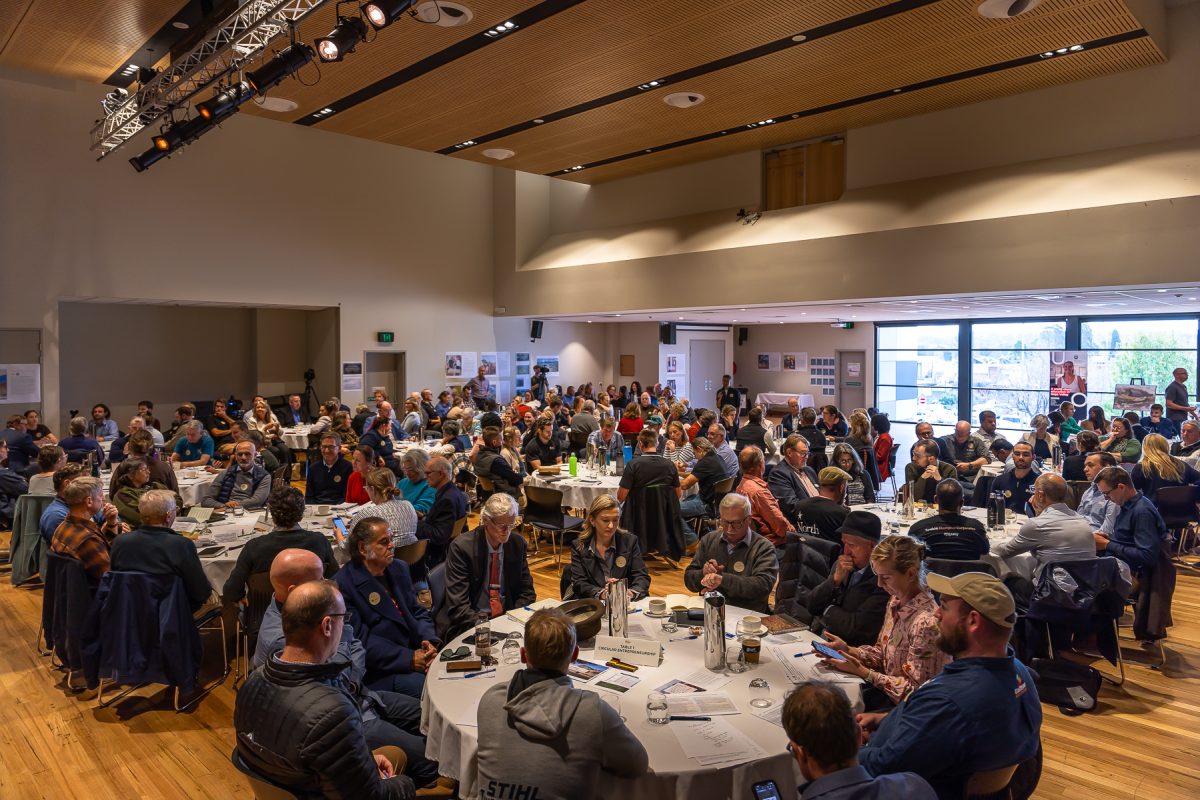
Around 140 people attended the booked-out Bega Circular Valley Community Workshop in the Bega Commemorative Centre on 28 May. Photo: David Rogers Photography.
Mr Irvin believes circular economies can help solve many of the world’s environmental and social challenges.
It is a different model from the contemporary linear economy of the Western world that is driven by convenience and results in loss of resources and value, plus environmental pollution.
“If we make the whole valley circular, it will make a difference because we are showing everyone and can be a beacon,” he said. “We can show what works and what doesn’t work, creating knowledge and sharing it.”
The council’s CEO Anthony McMahon said the council played a major role in educating the community and changing its behaviour. For example, the council’s adoption of a waste collection service for food scraps and garden waste that stops it going into landfill.
He said some treated effluent was used at showgrounds and to increase nutrients on farmland.
Managing some $2 billion of physical assets with a finite life gives them opportunities to think about circularity such as when managing roads. “When we replace roads do we take away the material or look at ways to use the material that is already there?”
North of Eden Distillery co-owner and head distiller Gavin Hughes spoke about how he applies the lens of circularity to every aspect of the business.
“We wanted all our products to be place-based, made with things we can grow and things we can forage,” Mr Hughes said.
Instead of importing juniper berries from Eastern Europe, he has contracted a local juniper grower’s entire supply. North of Eden has reduced the carbon footprint of its bottles by reducing weight and partnering with a leader in the field. It has also introduced a refill service.
Having a background in psychology, he knows he can’t change anybody “but we can increase knowledge, choices, and connection so that people make different decisions”.
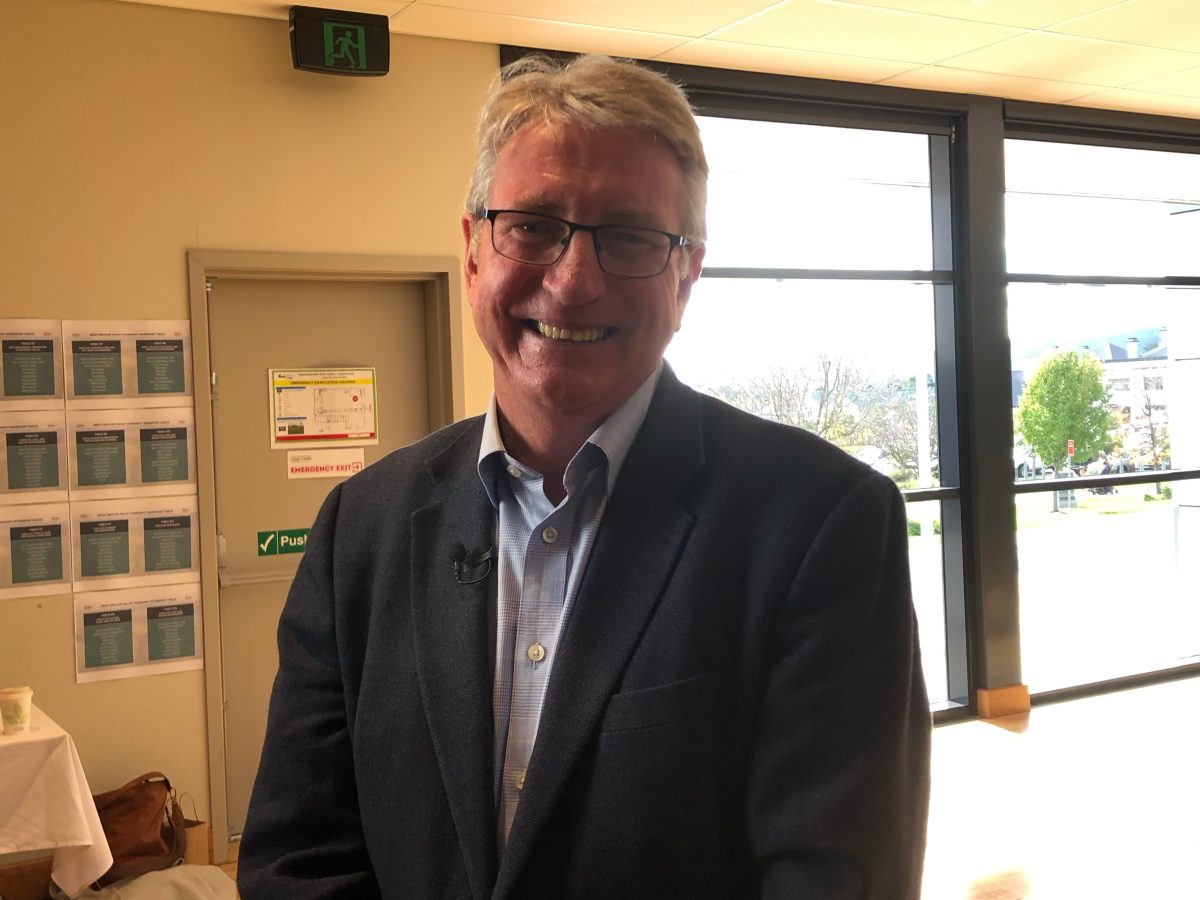
Barry Irvin, chair of the Regional Circularity Co-operative and Bega Group executive chair. Photo: Marion Williams.
Vanessa Spinelli, chief operating officer of social enterprise Grow the Future, said the focus needed to shift from a product-driven economy back to the process.
“By buying our carrots, you are investing in our processes including meaningful work by young people who are regenerating the land and gaining an understanding of the environment,” Ms Spinelli said. “They see flaws in today’s systems and show that by disengagement.”
Aunty Ellen Mundy said collecting, hunting and trading were part of Aboriginal people’s circular economy.
“Middens were our rubbish sites and shells were reused on burial sites,” she said.
Aunty Ellen said the geebung tree, a source of food and medicine, was now used in the manufacture of antibiotics, while lomandra continued to be used for traditional baskets.
Mr Irvin said that when he was talking to Aboriginal people about what he was thinking, one said to him, “The trouble with you blokes is you think you invented everything.”
Mr Irvin is working with the CSIRO and universities to develop a baseline with environmental, social and economic perspectives so improvements in the valley can be measured. He said that was something that hadn’t been done anywhere else in the world.







